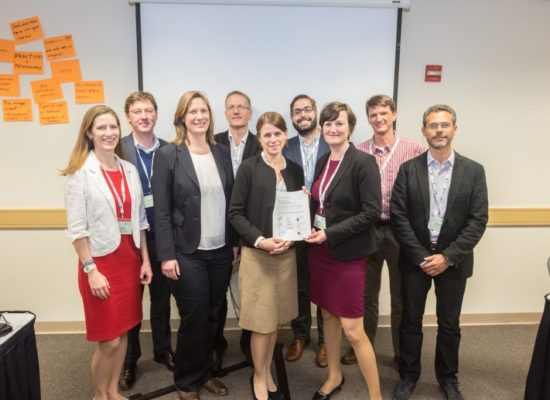What is GCP doing to fight the use of pesticides?


Extract of ‘The Developing World is Awash in Pesticides. Does it Have to Be?’, taken from Ensia, written by Aleszu Bajak. Read the full article here.
Herbicides, insecticides and fungicides threaten the environment and human health in many parts of the world. But research is pointing to a better approach.
In today’s globalized world, it is not inconceivable that one might drink coffee from Colombia in the morning, munch cashews from Vietnam for lunch and gobble grains from Ethiopia for dinner. That we can enjoy these products is thanks, in large part, to expanded pesticide use across the developing world.
Every year, some 3.5 billion kilograms (7.7 billion pounds) of pesticides — a catch-all term for the herbicides, insecticides and fungicides applied to crops from seed to harvest — are used to preserve the quality and quantity of fruits, vegetables and grains. Herbicides, such as Monsanto’s weed killer glyphosate, make up the bulk of the pesticides applied worldwide.
In the developing world, where swelling populations, increased urbanization and growing economies create a demand for ever-more food — produced quickly and inexpensively — pesticide application rates are rising. Bangladesh and Thailand have quadrupled their pesticide use since the early 1990s, while Ghana, Ethiopia and Burkina Faso, countries newer to the pesticide game, have seen a 10-fold increase over the same period, according to the Food and Agriculture Organization of the United Nations.
At the ISEAL 2016 Global Sustainability Standards Conference in Washington D.C., the Global Coffee Platform and 7 other ISEAL members confirmed their efforts to work together towards the improvement of knowledge and sustainable use of pesticides, which includes reducing or eliminating HHPs (Highly Hazardous Pesticides). This ISEAL Integrated Pest Management Coalition has laid out an agenda that shows how verification-certifications schemes can work together to collectively drive bigger impact on this issue.
The coalition has agreed to promote a set of common principles for integrated pest management (IPM), to seek and promote alternatives to pesticide use, to share their strategies and techniques with each other, to create a common manual for training programs and producers on worker health risks and how to use safety equipment, and to create a common reference database with information on banned pesticides and knowledge-sharing on integrated pest management. The group will also monitor their work in a consistent manner.
The signatory members of the IPM Coalition Partnership Document (MoU) are: Better Cotton Initiative, Bonsucro, Fairtrade International, Global Coffee Platform, Golf Environment Organization, Roundtable on Sustainable Biomaterials, Sustainable Agriculture Network, and UTZ.
